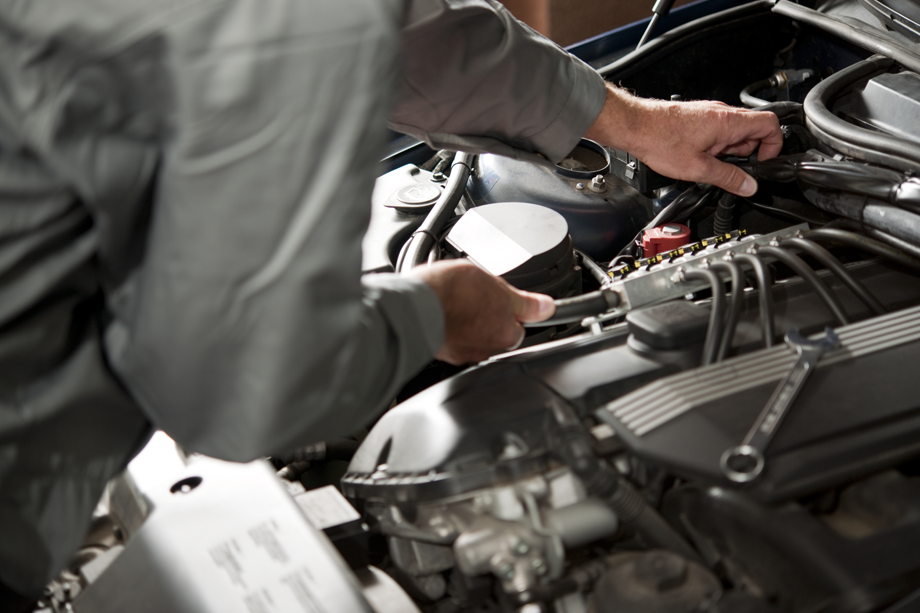All Categories
Featured
The timing belt is an essential part of your engine, accountable for synchronizing the motion of numerous engine components, such as the crankshaft and camshaft. While the timing belt may not be something you assume about frequently, ignoring its upkeep can lead to significant engine damage and costly fixings.
What Is a Timing Belt and Exactly How Does It Work? The timing belt is a rubber or composite material belt that connects the crankshaft to the camshaft in an internal burning engine. The camshaft controls the opening and closing of the engine's consumption and exhaust valves, and it should be timed completely with the movement of the pistons in the engine. The timing belt makes certain that these components are in sync, permitting the engine to run smoothly.
If the timing belt ends up being or falls short worn, the camshaft and crankshaft will no longer be synchronized, which can cause the engine's shutoffs to strike the pistons. This causes catastrophic engine damage and commonly requires pricey repair services or even an engine substitute.
Why Is Timing Belt Substitute Important? Gradually, the timing belt can use down because of rubbing, warmth, and basic engine wear. While it might appear like a little problem, a defective timing belt can cause serious engine issues. Below's why prompt substitute is crucial:
Protecting Against Engine Damages: As stated, a damaged or sliding timing belt can trigger the engine's pistons and valves to clash. This leads to bent shutoffs, harmed pistons, and in severe instances, a complete engine failure. Changing the timing belt before it breaks can prevent this costly damages.
Maintaining Engine Efficiency: A worn-out timing belt can interfere with the synchronization of the engine elements, minimizing overall engine performance. Replacing the belt helps maintain optimum engine feature, making sure smooth operation, boosted fuel performance, and much better efficiency.
Staying Clear Of Unanticipated Breakdown: A broken timing belt can leave you stranded on the side of the roadway, causing a major inconvenience. By changing the timing belt at the recommended intervals, you can avoid the threat of an unexpected breakdown, especially in the middle of a lengthy trip or when you least expect it.
![]()
Conserving Money over time: While timing belt replacement can feel like an expenditure you could intend to put off, it's more affordable than the price of repairing or replacing a damaged engine. The substitute expense is reasonably inexpensive compared to the comprehensive repair work called for if the timing belt breaks. Proactive upkeep can save you hundreds of bucks in repair services and maintain your car's value.
When Should You Change the Timing Belt? The timing belt substitute timetable can differ relying on your automobile's make and version. Generally, many producers advise replacing the timing belt every 60,000 to 100,000 miles. However, it's always best to consult your proprietor's handbook or a trusted mechanic for particular recommendations for your car.
Indicators that your timing belt might need replacement consist of uncommon engine sounds such as whining or ticking, trouble starting the engine, or a noticeable reduction in engine performance. It's essential to have the timing belt checked quickly. if you experience any of these symptoms.
![]()
Final thought. Replacing the timing belt at the suggested periods is a key part of preserving your engine's health and making certain that your automobile runs smoothly. A damaged timing belt can lead to expensive repair work, engine failure, and unanticipated malfunctions, which can be avoided with appropriate maintenance.
What Is a Timing Belt and Exactly How Does It Work? The timing belt is a rubber or composite material belt that connects the crankshaft to the camshaft in an internal burning engine. The camshaft controls the opening and closing of the engine's consumption and exhaust valves, and it should be timed completely with the movement of the pistons in the engine. The timing belt makes certain that these components are in sync, permitting the engine to run smoothly.
If the timing belt ends up being or falls short worn, the camshaft and crankshaft will no longer be synchronized, which can cause the engine's shutoffs to strike the pistons. This causes catastrophic engine damage and commonly requires pricey repair services or even an engine substitute.
Why Is Timing Belt Substitute Important? Gradually, the timing belt can use down because of rubbing, warmth, and basic engine wear. While it might appear like a little problem, a defective timing belt can cause serious engine issues. Below's why prompt substitute is crucial:
Protecting Against Engine Damages: As stated, a damaged or sliding timing belt can trigger the engine's pistons and valves to clash. This leads to bent shutoffs, harmed pistons, and in severe instances, a complete engine failure. Changing the timing belt before it breaks can prevent this costly damages.
Maintaining Engine Efficiency: A worn-out timing belt can interfere with the synchronization of the engine elements, minimizing overall engine performance. Replacing the belt helps maintain optimum engine feature, making sure smooth operation, boosted fuel performance, and much better efficiency.
Staying Clear Of Unanticipated Breakdown: A broken timing belt can leave you stranded on the side of the roadway, causing a major inconvenience. By changing the timing belt at the recommended intervals, you can avoid the threat of an unexpected breakdown, especially in the middle of a lengthy trip or when you least expect it.

Conserving Money over time: While timing belt replacement can feel like an expenditure you could intend to put off, it's more affordable than the price of repairing or replacing a damaged engine. The substitute expense is reasonably inexpensive compared to the comprehensive repair work called for if the timing belt breaks. Proactive upkeep can save you hundreds of bucks in repair services and maintain your car's value.
When Should You Change the Timing Belt? The timing belt substitute timetable can differ relying on your automobile's make and version. Generally, many producers advise replacing the timing belt every 60,000 to 100,000 miles. However, it's always best to consult your proprietor's handbook or a trusted mechanic for particular recommendations for your car.
Indicators that your timing belt might need replacement consist of uncommon engine sounds such as whining or ticking, trouble starting the engine, or a noticeable reduction in engine performance. It's essential to have the timing belt checked quickly. if you experience any of these symptoms.

Final thought. Replacing the timing belt at the suggested periods is a key part of preserving your engine's health and making certain that your automobile runs smoothly. A damaged timing belt can lead to expensive repair work, engine failure, and unanticipated malfunctions, which can be avoided with appropriate maintenance.
Latest Posts
Secure Your Home with Seamless Gutter Solutions for Illinois Climate
Published Apr 20, 25
1 min read
Your Roof Covering Substitute Journey: A Complete Walkthrough
Published Apr 20, 25
2 min read
Floor Covering Professionals Who Treat You Like Household
Published Apr 19, 25
1 min read
More
Latest Posts
Secure Your Home with Seamless Gutter Solutions for Illinois Climate
Published Apr 20, 25
1 min read
Your Roof Covering Substitute Journey: A Complete Walkthrough
Published Apr 20, 25
2 min read
Floor Covering Professionals Who Treat You Like Household
Published Apr 19, 25
1 min read